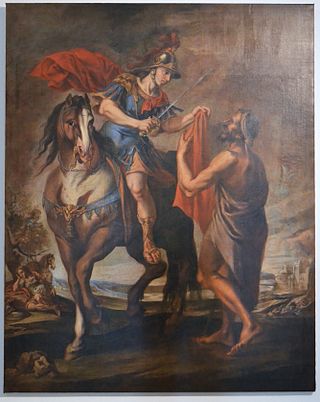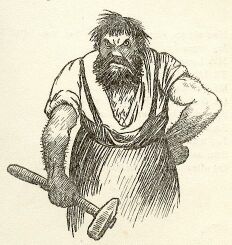Edel is both a surname and a given name. Notable people with the name include:
Edel is both a surname and a given name. Notable people with the name include:
Pronounced /iːˈdɛl/
EDEL, the ICAO code for Langenlonsheim Airfield Axel is a Scandinavian, German, French, and Dutch masculine given name. In Estonia, Denmark, and Norway the spelling Aksel is more common. The Finnish form of the name is Akseli. A French feminine form is Axelle.
Heine is both a surname and a given name of German origin. People with that name include:
Bloch is a surname of German origin. Notable people with this surname include:

Margot is a feminine given name, a diminutive of Marguerite. It is also occasionally a surname. Persons named Margot include the following:
Elma or ELMA may refer to:
Rolf is a male given name and a surname. It originates in the Germanic name Hrolf, itself a contraction of Hrodwulf (Rudolf), a conjunction of the stem words hrod ("renown") + wulf ("wolf"). The Old Norse cognate is Hrólfr. An alternative but less common variation of Rolf in Norway is Rolv.
Lina is an international feminine given name, mostly the short form of a variety of names ending in -lina including Adelina, Angelina, Carmelina, Carolina, Catalina, Emelina, Evangelina, Evelina, Karolina, Italina, Marcelina, Melina, Nikolina, Paulina, Rosalina, and Žaklina.
Paulsen is a Danish, Norwegian and German patronymic surname, from the given name Paul prefix, of Latin origin, itself derived from Paulus, meaning "small". People with the name Paulsen include:
Hans is a Germanic male given name in Afrikaans, Danish, Dutch, Estonian, Faroese, German, Norwegian, Icelandic and Swedish-speaking populations. It was originally short for Johannes (John), but is now also recognized as a name in its own right for official purposes. The earliest documented usage was in 1356 in Sweden, 1360 in Norway, and the 14th century in Denmark.
Jonas is a common male name in many Western world countries and Northeast Africa. It is primarily used as a first name, but also occurs as a surname. It is particularly frequent in Germany, Israel, Ethiopia, the Netherlands, Flanders and Scandinavia. It is also the most common name in Lithuania; however, in Lithuania, the name Jonas is derived from the Hebrew Yohanan as opposed to Jonah.
Toni, Toñi or Tóni is a unisex given name.
Kristen is a first name, also the Breton, Danish, Swedish and Norwegian form of Christian. As a result, Kristen is a male name in Norway, Sweden and Denmark, with the female equivalent spelt as Kristin, a Scandinavian form and a variation of Christine. In Breton, Kristen is both a male and female name. In Indonesian, Kristen is the name for Christian religion from English. In English-speaking countries, Kristen is now usually a female name, used as an alternative spelling of Kristin, with the Kristen spelling having become the more popular spelling of the name in English-speaking countries for newborn girls by the mid 1970s.

Oscar or Oskar is a masculine given name of English and Irish origin.

Bridget is an Irish female name derived from the Gaelic noun brígh, meaning "power, strength, vigor, virtue". An alternative meaning of the name is "exalted one". Its popularity, especially in Ireland, is largely related to the popularity of Saint Brigid of Kildare, who was so popular in Ireland she was known as "Mary of the Gael". This saint took on many of the characteristics of the early Celtic goddess Brigid, who was the goddess of agriculture and healing and possibly also of poetry and fire. One of her epithets was "Brigid of the Holy Fire". In German and Scandinavian countries, the popularity of the name spread due to Saint Bridget of Sweden.
The name Kai has various origins and meanings in different cultures:

Martin may either be a given name or surname. In Scotland, Martin or McMartin is a common surname of Scottish Gaelic origin. Martin is, however, more common as a masculine given name in many languages and cultures. It comes from the Latin name Martinus, which is a late derived form of the name of the Roman god Mars, protective godhead of the Latins and, therefore, god of war. The meaning is usually rendered in reference to the god as "of Mars", or "of war/warlike" ("martial"). Alternatively, it may also be derived from the Proto-Germanic elements "mar", meaning famous and "tank", meaning thought, counsel.

Emily is a feminine given name derived from the Roman family name "Aemilius", and is the feminine form of the name Emil.

Adel is a given name of ancient European origins that evolved from words meaning "noble", "nobility" or "elite".
Lorenzen is a surname. It is a patronymic from the name Lorenz. It is of North German, Dutch, Danish, and Norwegian origin.

Faber is the Latin word for "smith". Like a few other Latin occupational names, it was adopted as a surname in the Low Countries and Germany. It is also common in England, perhaps due to Norman French influence. Notable people with the surname include: